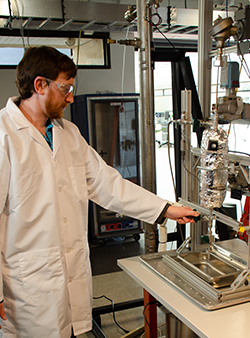
AMS Continues to Support the Development of Advanced Nuclear Reactors With its 35th Phase I Research Grant
AMS supports the commissioning of the first two Westinghouse AP1000 reactors with several services such as RTD and pressure transmitter response time testing, baseline cable testing of several systems, and noise analysis after startup. AMS supported similar commissioning work on four AP1000s built in China from 2016-2018. The new units at Vogtle will be the first new commercial nuclear reactors to come online in the U.S. since Watts Bar Unit 2 came online in 2016.
Per Southern Nuclear, the AP1000 reactors are part of the Vogtle Unit 3 & 4 expansion project. As of October 2020, the entire project was approximately 88% complete and is expected to meet it’s in-service dates of November 2021 for Unit 3 and November 2022 for Unit 4. Once online, the reactors will provide clean reliable power to 1 million homes and businesses in Georgia.
AMS was recently awarded a $200,000 Phase I research opportunity through the US Department of Energy’s (DOE) Small Business Innovation Research (SBIR) program. AMS’ research will focus on developing and verifying testing methods for sensors that have been embedded as part of an additive manufacturing or 3D printing process. These testing technologies will be a necessary part of ensuring that advanced nuclear reactors developed using these innovative manufacturing techniques are operating safely and efficiently. This research builds upon AMS’ extensive experience in testing nuclear instrumentation within traditional power plants.
This award was one of over 250 similar grants distributed by the DOE to small businesses throughout the country focusing on advanced technologies for energy production. AMS was one of 24 companies developing advanced technologies for nuclear reactors to receive an award and was one of only three companies based in Tennessee. This award marks the 35th Phase I research grant AMS has received from the DOE over the last 40 years. This history of successful research demonstrates the long-term viability of the SBIR’s mission to promote the development of advanced technologies, as many of AMS’ current products and services were initially developed as part of this program.








